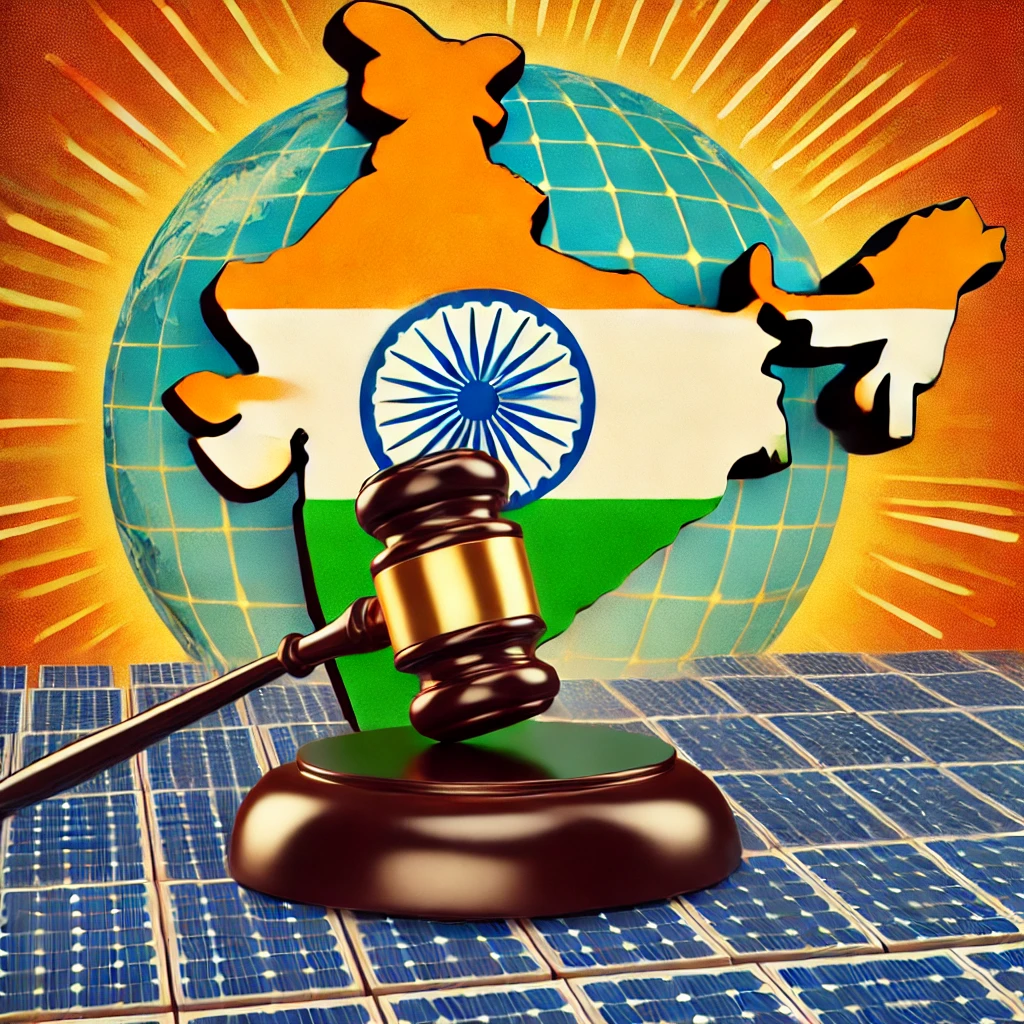
WTO Rules Against India’s Domestic Content Requirements for Solar Projects
At a time when climate change demands urgent action, India has been making bold moves to scale up solar energy. But a recent World Trade Organization (WTO) ruling has thrown a wrench in those plans.
The WTO has ruled against India’s policy of requiring solar developers to source a percentage of their equipment from domestic manufacturers, siding with complaints from the European Union and Japan.
The Heart of the Dispute
India’s National Solar Mission mandated local sourcing to boost domestic industry, create jobs, and reduce reliance on Chinese imports. But international players argued that this policy violates WTO’s Agreement on Trade-Related Investment Measures (TRIMs).
India made three key defenses:
🌎 Energy Security – India needs self-sufficiency in solar to avoid future geopolitical energy crises.
🌱 Environmental Necessity – Article XX(g) of GATT should allow sustainability-focused exemptions.
📉 Developmental Flexibility – Emerging economies should have more leeway to protect nascent industries.
The WTO’s Verdict
After months of deliberation, the WTO panel ruled against India, arguing that:
⚖ Local sourcing requirements violate global trade agreements.
⚖ Environmental objectives cannot justify trade discrimination.
⚖ International manufacturers should have equal access to India’s renewable energy market.
What This Means for India’s Solar Future
India is now at a crossroads:
🔹 Modify policies to align with WTO rules, allowing more foreign-made solar components.
🔹 Negotiate new trade deals that provide climate-friendly exceptions.
🔹 Increase manufacturing incentives, shifting from mandatory sourcing to attracting voluntary investment.
Climate activists argue that trade laws must evolve to allow sustainability-driven policies. The ruling has also revived calls for a “Climate-Trade Compact”, where environmental goals get special consideration under global trade frameworks.
For now, India must walk a tightrope between green energy ambitions and global trade obligations. Will policymakers adapt or resist? The world is watching.












comments